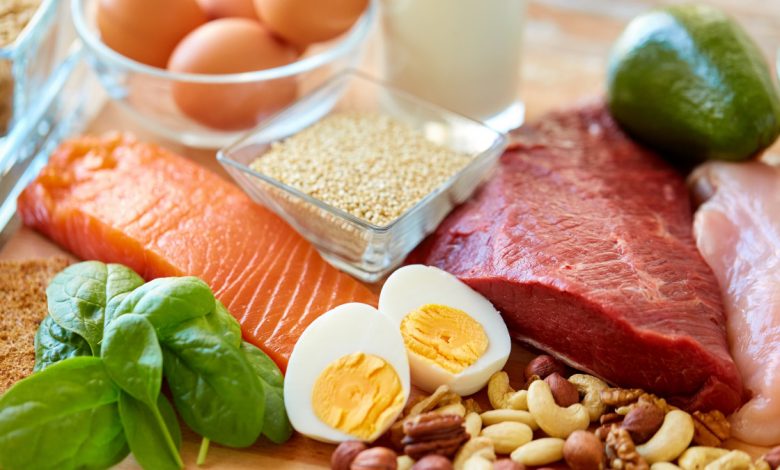How to lose weight with protein?

Proteins are part of the three main families of macronutrients with carbohydrates and lipids. “Essential to the body, they play a structural role (at muscle or skin level), but are also involved in many processes such as the immune response (antibodies), the transport of oxygen in the body (hemoglobin), or digestion (digestive enzymes)”explains the National Agency for Food, Environmental and Occupational Health Safety (Anses).
Protein needs vary depending on different factors
Protein can also be allies for weight loss. “Protein is invaluable when it comes to increasing satiety and satisfaction after a meal (…) Knowing how to use this key nutrient as part of a balanced diet puts the odds in your favor to losing weight”said Annalize Pratt, an American dietician, in an interview with Healthessentials.
However, protein requirements depend on several factors: age, gender, level of physical activity and medical history. “In general, you need to make sure that 10-35% of your daily calories come from protein and you need to burn 500 calories more than you eat each day if you want to lose weight”recommended the dietitian.
What are the benefits of protein for weight loss?
These macronutrients promote satiety in particular, because they take longer to digest than other nutrients. “If you’re not getting enough protein, you’re more likely to eat more of other foods to fill you up. This can lead to an increase in overall calorie intake”highlighted Annalize Pratt.
The thermic effect of food (TEF) is one of the components of metabolism. It translates into the energy our body expends to digest, metabolize and store nutrients. Protein provides our body with energy in the form of calories. During digestion, the body burns more calories digesting protein than carbohydrates, which promotes weight loss.
Increasing protein in the diet also helps decrease visceral fat, which is the adipose tissue located under the muscles of the abdominal wall.
Eggs, chickpeas, tofu… what foods are high in protein?
Combined with regular physical activity, protein consumption reduces the storage of body fat. There are different sources of protein, including:
eggs ;
dairy products ;
fish (trout, sardines, salmon) and seafood;
meat ;
legumes (chickpeas, lentils, split peas);
the dried fruit ;
nuts ;
the cereals ;
seeds ;
the tofu.












